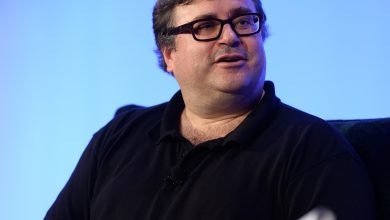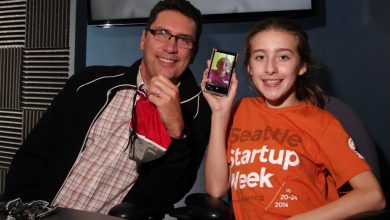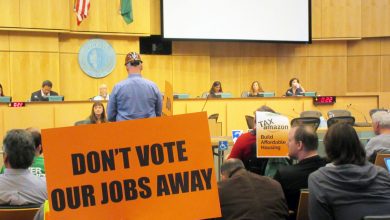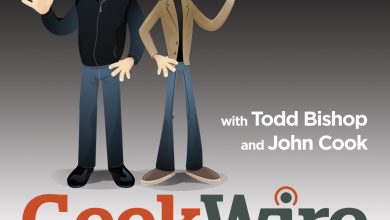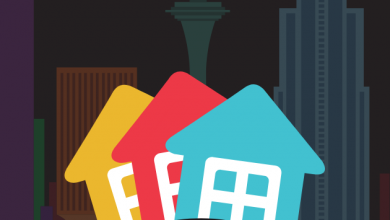The future of podcasting: Can the business of audio content catch up with the creative revolution?
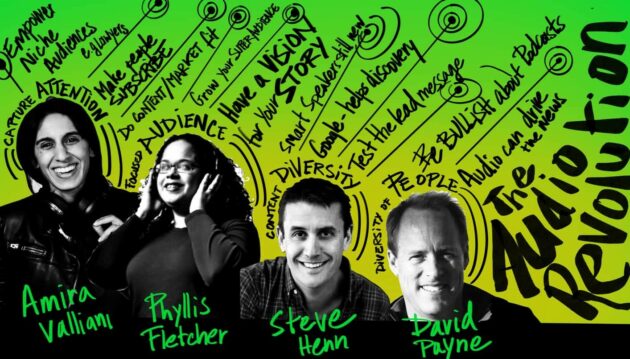
More than half of the U.S. population over age 12 has now listened to a podcast, according to Edison Research. The medium has fundamentally altered the landscape for audio content, liberating and empowering both listeners and creators. And big acquisitions such as Spotify’s purchase of Gimlet Media signal that the business of podcasting is coming of age, too.
But there remains an economic gulf that some entrepreneurs and investors see as an opportunity. Ad spending on podcasting is around $500 million, by some estimates, but that compares to $17 billion or more for radio.
So where is podcasting heading next? How will speech recognition, smart speakers and other innovations change the landscape for podcasts? Should you start your own show? Could you make any money if you did?
On this episode of the GeekWire Podcast, we’re going meta. It’s a podcast about podcasting: a discussion with podcast producers, media vets and startup entrepreneurs, recorded on stage at the GeekWire Summit this fall.
Listen above or subscribe to GeekWire in your favorite podcast app, and continue reading for edited highlights and key takeaways from the panel.
- Phyllis Fletcher, the senior editor for podcasts at American Public Media, who has worked on shows including APM’s hit business podcast, Spectacular Failures. You may recognize her voice from her previous work as a reporter and editor at KUOW Radio in Seattle. (You can check out all of her tweets from the GeekWire Summit here.)
- Steve Henn, who leads content strategy for audio news at Google. He’s a journalist turned tech entrepreneur who left a career in radio to co-found a digital media startup that was acquired by Google in 2017. You may recognize his voice from his work in public radio as a correspondent on such shows as Marketplace, Planet Money and NPR.
- David Payne, the president of Rainstream Media and the co-creator, author and executive producer of its flagship show, “Somebody Somewhere,” a true crime podcast. A lawyer and former federal prosecutor, his career in media has included roles as Chief Digital Officer for Gannett/USA Today, and senior vice president and GM of CNN Digital.
- Amira Valliani is the CEO and co-founder of Glow, a Seattle startup and Pioneer Square Labs spinout that is building a subscription, monetization and distribution platform for podcasts. She served as a communications adviser in the Obama White House and as a speechwriter for then-Secretary of State Hillary Clinton. She got started in podcasting with her own local politics show.
We started by discussing how podcasting has transformed the art and science of producing and distributing content.
Fletcher: “Marketing was anathema to public radio for decades. It was just like, ‘We don’t do that.’ And now we do do that. Especially in the podcast space, you have to. Thinking about the art, the theme song, that you want it to grab the person and communicate to them, ‘This show is for you.’ …
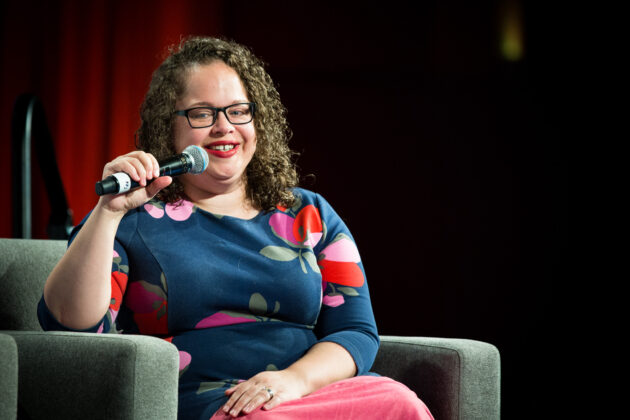
“It’s so liberating because, especially if you have a host who’s a woman and she’s funny, she will suffer the slings and arrows of outrageous sexism in the critiques, directed towards her voicing and even her very existence. And it’s so freeing, as an editor, to say, ‘This show isn’t for those people.’”
Henn: “One of the things podcasting and digital distribution allow you to do is to speak to much more diverse audiences. If you think historically about who public broadcasters spoke to, there’s a stereotype: they tend to be college-educated, they’re disproportionately white. It was public broadcasting but it was leaving out 80 percent of the public.
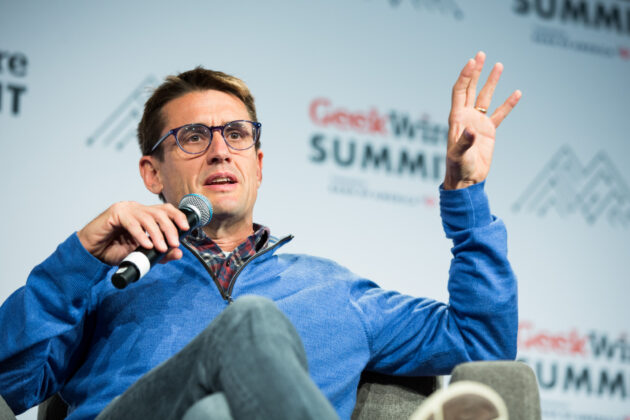
“The diversity of content that digital distribution supports is much wider. It allows public broadcasters to reach much, much more diverse audiences than they have historically by actually marketing those stories to those communities and speaking in their voice to those listeners.”
Payne: “I had this epiphany when I listened to ‘Serial.” It was first-person storytelling that changed the genre. So you could go into a news story and then say, “I believe, I wonder, I think, I’m not sure,” which was a complete game-changer. And I think with podcasting, because it’s such an intimate thing and it’s in your ears, it’s a diary type of format, that’s been the biggest eye-opening thing for me as a content creator. …
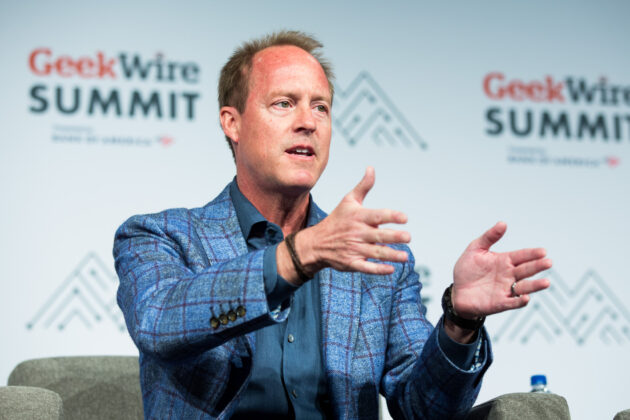
“Somebody asked me what I did when I was standing out here earlier. I can give the corporate answer of starting a company, but what I really do is investigate murders. And that turns out to be a fascinating job.”
Valliani: “As a former speech writer, we used to really aim for, ‘What is that zinger line going to be? What is the thing that is going to be on the news tonight? Because that is the message that we need to communicate.’
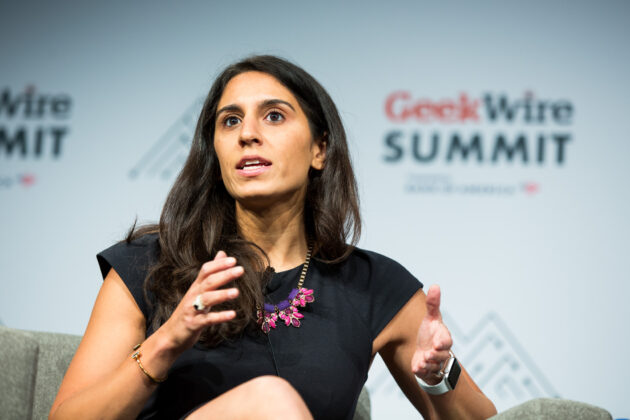
“So you’re telling this immense story in a 30-to-40 minute speech about something complex like American leadership. But really you’re thinking, ‘What’s going to be the 30 second clip that gets carried on CNN tonight?’ And what’s beautiful about podcasting is you can actually get someone to stay for the entire 30 or 40 minutes.”
Discussing the impact of audience data, Henn explained how the NPR One app changed what he was able to do as a reporter. “It was amazing to see for the first time when you wrote a joke and it worked when you wrote a lead and it worked. And more importantly when you did something and it didn’t work and begin to dig into why and make your work better.”
On the topic of podcast discovery, Google is working initiatives including transcribing and indexing the content of podcasts to enable full-text search. It works by searching for a keyword with the word “podcast” after that.
Payne said the inability to find podcasts ranked by customer ratings is a “huge miss” by the industry and an opportunity for someone to step up.
Valliani described the current economic disconnect in podcasting as “stunning,” citing “a huge gap in how much engagement you’re seeing in podcasting and how much monetization is happening.”
That’s the opportunity that Valliani’s startup, Glow, is pursuing with its platform for podcast subscriptions, monetization and member content. Glow raised $2.3 million in seed funding in August. Its platform lets podcasters charge for memberships that offer custom content, and it has also expanded with a free tier, as well, for podcasts that simply want to collect donations.
Where do smart speakers fit in? The impact of devices like Amazon Echo is limited in podcasting so far, but the potential is interesting, particularly when it comes to letting people interact with audio content.
“Creating these moments where you can be the voice in someone’s ear, it can be incredibly intimate, but they can actually interact with that experience, is potentially groundbreaking,” Henn said. “There is no platform out there today that really allows producers to seamlessly and easily create those choose your own adventure experiences or to enable interactivity. But I think we’re on the cusp of that.”
Should you start your own podcast? “No matter what you’re doing, you have to know why you’re doing it, and who it’s for and how they’re going to use it,” Fletcher said. “And you also should know when to stop. … You shouldn’t, as an entrepreneur, just feel like, ‘Oh God, I have to be in the podcast space, too. I have to do a podcast. You have to think about why, and who is this for?”
Payne added, “You have to come in with a vision of a story,” driven by characters and people.
Is podcasting a smart investment? Valliani cited Spotify’s purchase of Gimlet as an example, explaining that it gives the streaming giant direct ownership of content that differentiates its platform without the licensing fees required for acquiring popular music. “The question is, is content a smart bet for Spotify? And if you look at the economics, it makes incredibly compelling sense for Spotify to place bets on podcasts.”
Those are just a few of the highlights. Listen to the full discussion above or subscribe to GeekWire in your favorite podcast app.
After the event, for some bonus content, I asked each of the panelists to share their own favorite podcasts. Here are their picks and commentary.
Steve Henn:
- The Memory Palace by Nate DiMeo: These short stories about our shared history are timeless. Always surprising, beautifully written and produced. Nate has been making this pod for nearly a decade He realized before most how intimate a podcast was and how different the tone can be. I think his style may have helped inspire 99% Invisible.
- This is Uncomfortable: Reema Khrais explores how money affects relationships, shapes identities and defines what it means to be an adult. There are lots of personal finance shows – but very few dig into how money shapes who we are. Diverse guests and stories make this pod sing.
- The Post Reports is a must listen for a news junky. Created by the Washington Post, it more efficient and respectful of your time than the Daily, but still a beautifully crafted afternoon show on what you need to know about the world. Opens up the big stories the Post is breaking and every episode includes something new and surprising.
Phyllis Fletcher:
- Who? Weekly: A roundup of celebrity gossip of the week that divides the genre into coverage of A-listers (“Thems”) and D-listers (“Whos”), which are the show’s focus—but soon you realize the show is a celebration and critique of our obsession with celebrity itself.
- Keep It: A weekly political commentary and analysis of pop culture news with a celebrity interview sandwiched in the middle. The show’s eponymous segment wraps the show when each host jeers the newsmaker with the biggest gaffe of the week, and tells that person or entity to “keep it.”
- Truth Be Told: An advice show by and for people of color from public radio’s KQED, hosted by former Seattle journalist Tonya Mosley. You can binge the first season and eagerly await their second!
David Payne:
- To Live and Die in LA. (Murder investigation where the journalist helps solve the crime – sound familiar??)
- Reveal: Investigative journalism (generally) on non-political matters.
- Revisionist History. As only Gladwell can do …
Amira Valliani:
- Bombshell: Completely in the weeds show about foreign policy, hosted by three women who used to work at DoD, the State Department, and the NSC. They’re hilarious, incisive, and always a fascinating listen.
- Recode/Decode: Kara Swisher interviews tech CEOs, politicians, and other fascinating people, shedding light on the most interesting issues of the day and holding their feed to the fire.
- Startup: The show that started it all for me. Narrative stories about what it’s really like to start a company. Season 1 is about the founding of Gimlet, the company that produced the entire season (and now, one of the most prolific podcast companies out there).
Conclusion: So above is the The future of podcasting: Can the business of audio content catch up with the creative revolution? article. Hopefully with this article you can help you in life, always follow and read our good articles on the website: Ngoinhanho101.com

